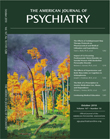The Effects of Antidepressant Step Therapy Protocols on Pharmaceutical and Medical Utilization and Expenditures
Abstract
Objective:
This study examined the effects of step therapy for antidepressants on prescription drug and other medical utilization and spending. Step therapy is a type of pharmaceutical benefit design that requires that patients try certain specified medications (typically generic medications) prior to using alternative, more expensive medications within the same medication class. Step therapy is not the same as generic substitution.
Method:
Using the 2003–2006 Thomson Reuters MarketScan claims databases, antidepressant users enrolled in employer plans that implemented antidepressant step therapy were compared with antidepressant users enrolled in employer plans that had not implemented step therapy. Multivariate generalized estimating equation models were used to analyze the relationship between step therapy for antidepressants and 1) pharmacy and medical utilization and 2) spending.
Results:
Antidepressant days supplied and medication costs decreased after step therapy was implemented, relative to the comparison group. However, overall and mental health-specific inpatient and emergency room utilization and costs increased.
Conclusions:
Step therapy may have the unintended effect of reducing overall antidepressant use and increasing medical use and costs.



